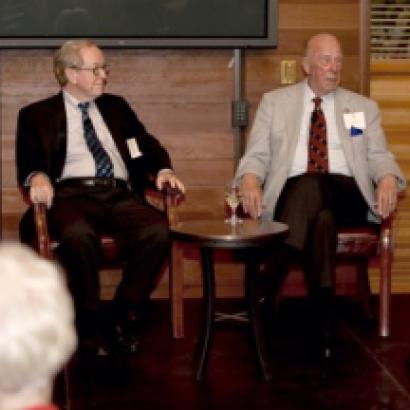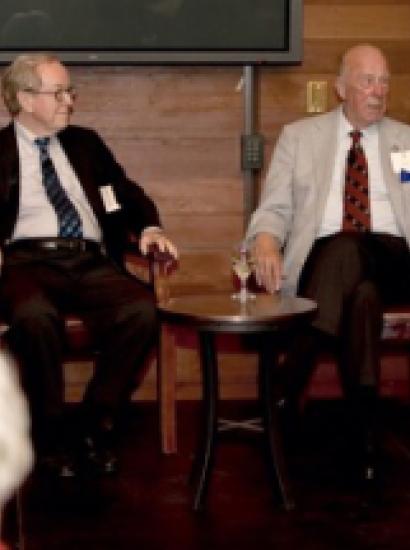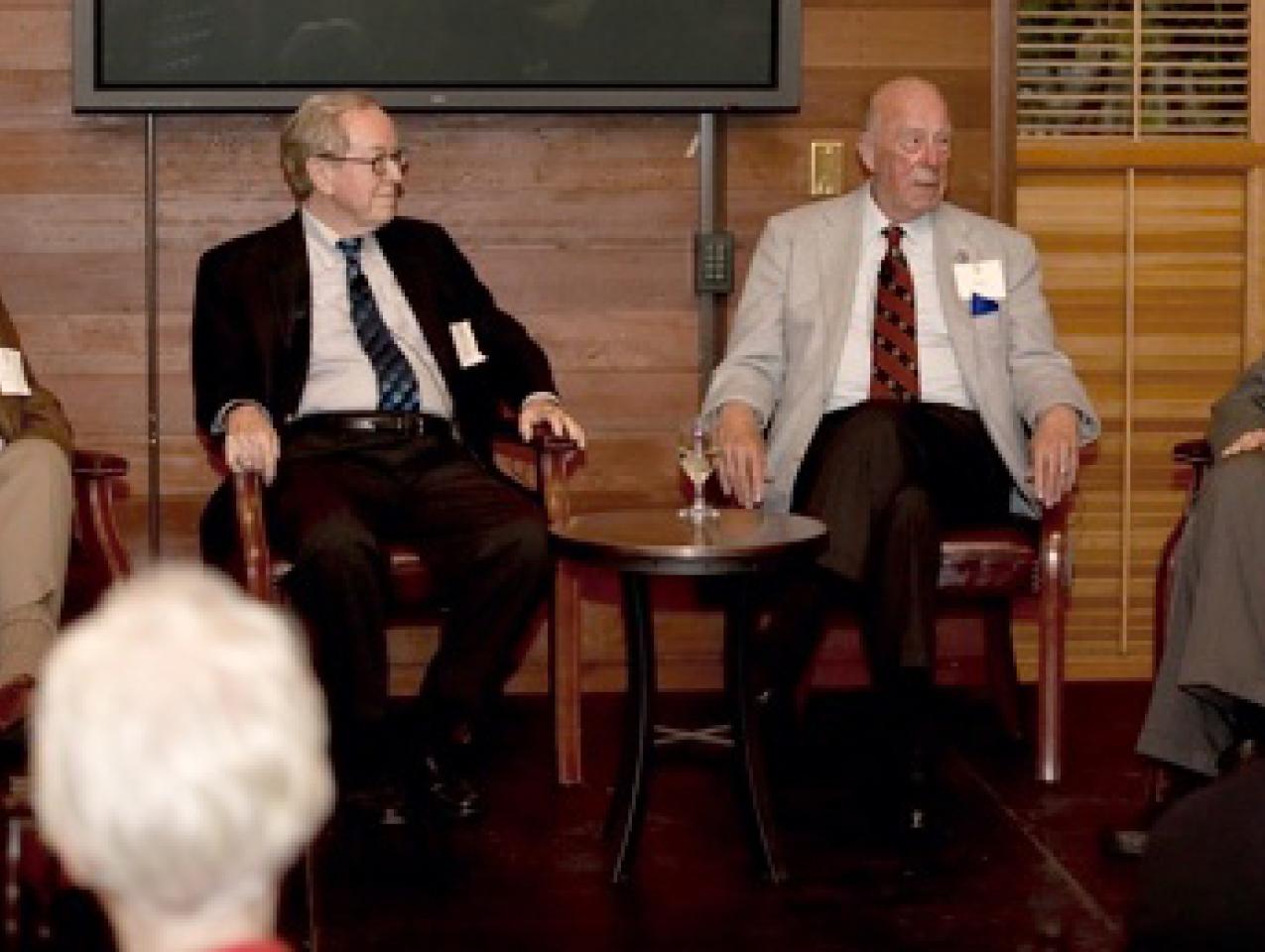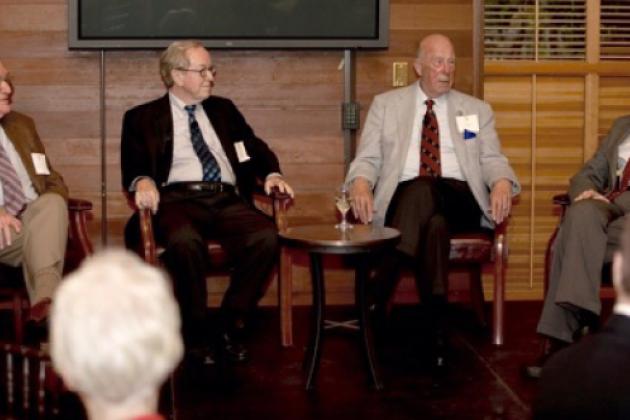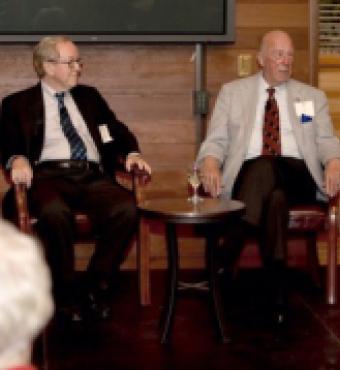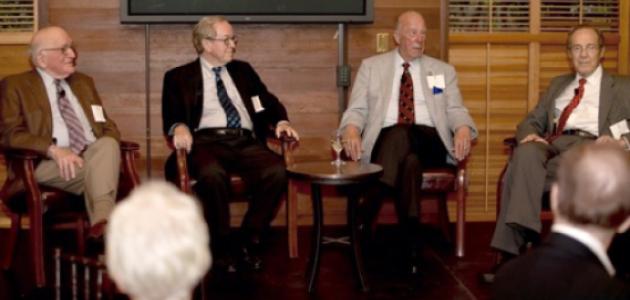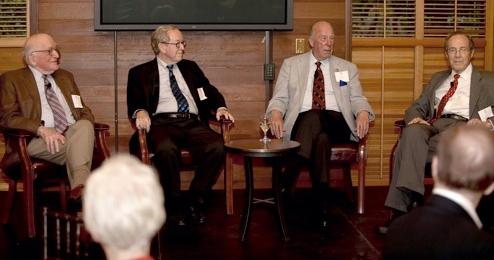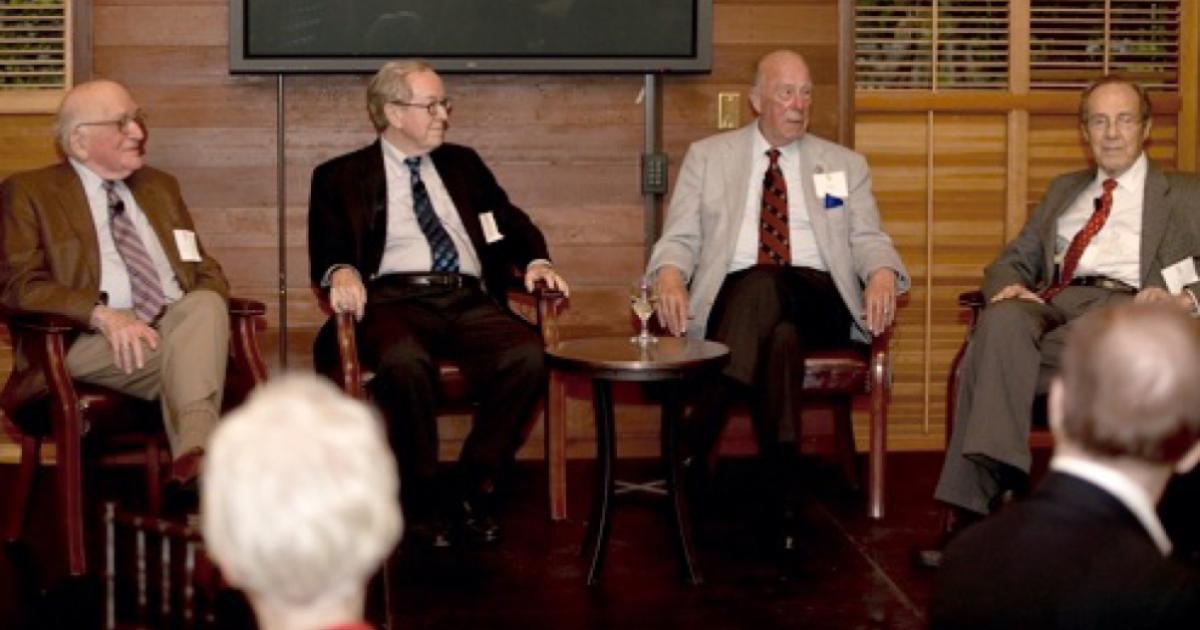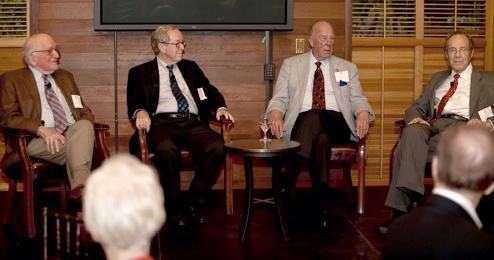
The key security challenges facing the United States and other nations as a program of nuclear warhead reductions unfolds were discussed at a conference titled “A World without Nuclear Weapons: End State Issues” on September 29.
The conference featured discussions of verification, deterrence, and international relationships during the end state of zero nuclear weapons. Those issues were also raised in a book having the same name as that of the conference by Sidney Drell, professor of physics emeritus at SLAC and a Hoover senior fellow, and James Goodby, former ambassador and Hoover research fellow.
Hosted by George P. Shultz, former secretary of state and Hoover Distinguished Fellow, along with Drell and Goodby, the conference included sessions moderated by David Holloway, Stanford professor and senior fellow at the Freeman Spogli Institute for International Studies, Stanford University, and Raymond Jeanloz, University of California, Berkley, professor and chair of the U.S. National Academy of Sciences’ Committee on International Security and Arms Control. In addition, Shultz led a discussion defining the path en route to zero, international agreement for elimination of nuclear weapons, and the geopolitical conditions that would permit reaching the goal of zero nuclear weapons.
The call for nuclear nonproliferation was first made at a conference held on the 20th anniversary of the Reykjavik summit in 2006 that was organized by Drell and Shultz. The initial conference was held to commemorate the 1986 summit in Reykjavik, Iceland, at which U.S. president Ronald Reagan and Soviet general secretary Mikhail Gorbachev first conceived of a nuclear-free world.







